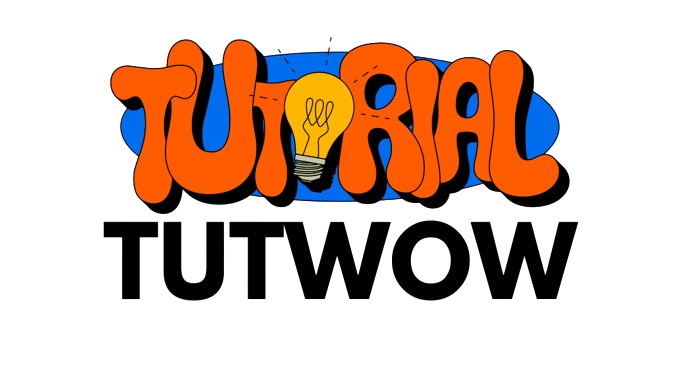Understanding SEO Basics: The Foundation of Your Online Success
Search Engine Optimization (SEO) is the cornerstone of any successful online presence. For new website owners, it can seem like a daunting task to navigate the complex world of SEO. However, with the right approach and knowledge, you can significantly boost your website’s visibility and drive more organic traffic to your site.
What is SEO and Why is it Important?
SEO is the practice of optimizing your website to rank higher in search engine results pages (SERPs). When your website ranks higher, it becomes more visible to potential visitors, leading to increased traffic and potentially more conversions.
Key benefits of SEO include:
• Increased organic traffic
• Better user experience
• Higher credibility and trust
• Cost-effective marketing strategy
• Long-term results
On-Page SEO: Optimizing Your Website’s Content and Structure
On-page SEO refers to the optimizations you can make directly on your website to improve its search engine rankings.
Keyword Research and Optimization
Keyword research is the foundation of any successful SEO strategy. It involves identifying the terms and phrases your target audience uses when searching for products or services related to your business.
Tools for keyword research:
• Google Keyword Planner
• SEMrush
• Ahrefs
• Moz Keyword Explorer
• Ubersuggest
Once you’ve identified your target keywords, incorporate them naturally into your content, including:
• Page titles
• Headers (H1, H2, H3)
• Meta descriptions
• URL structures
• Image alt text
• Body content
Creating High-Quality, Engaging Content
Search engines prioritize websites that provide valuable, relevant content to users. To rank well, focus on creating content that:
• Addresses user intent
• Provides in-depth information
• Is well-researched and accurate
• Includes relevant multimedia (images, videos, infographics)
• Is consistently updated and fresh
Optimizing Site Structure and Internal Linking
A well-organized website structure helps search engines understand your content and improves user experience.
Tips for optimizing site structure:
• Use a logical hierarchy for your pages
• Implement a clear navigation menu
• Create a sitemap
• Use breadcrumbs
• Implement internal linking to connect related content
Technical SEO: Enhancing Your Website’s Performance
Technical SEO focuses on improving the backend of your website to enhance its performance and crawlability.
Improving Site Speed and Performance
Page speed is a crucial ranking factor for search engines. To improve your site’s speed:
• Optimize images and videos
• Minimize HTTP requests
• Enable browser caching
• Use a content delivery network (CDN)
• Minify CSS, JavaScript, and HTML
Tools to check and improve site speed:
• Google PageSpeed Insights
• GTmetrix
• Pingdom
• WebPageTest
Mobile Optimization
With the majority of internet traffic coming from mobile devices, it’s essential to ensure your website is mobile-friendly.
Mobile optimization tips:
• Use responsive design
• Optimize for touch screens
• Implement accelerated mobile pages (AMP)
• Test your site using Google’s Mobile-Friendly Test tool
Implementing Schema Markup
Schema markup helps search engines better understand your content and can lead to rich snippets in search results.
Popular schema types:
• Organization
• Local Business
• Product
• Review
• Event
• Article
Use Google’s Structured Data Markup Helper to implement schema markup on your website.
Off-Page SEO: Building Your Website’s Authority
Off-page SEO refers to actions taken outside of your website to improve its search engine rankings.
Link Building Strategies
Backlinks from high-quality, relevant websites signal to search engines that your content is valuable and trustworthy.
Effective link building tactics:
• Guest posting on reputable sites
• Creating shareable infographics
• Participating in industry forums and discussions
• Leveraging social media
• Broken link building
Social Media Optimization
While social media signals aren’t direct ranking factors, they can indirectly impact your SEO by:
• Increasing brand awareness
• Driving traffic to your website
• Improving content distribution
• Enhancing online reputation
Key social media platforms for SEO:
• Facebook
• Twitter
• LinkedIn
• Instagram
• Pinterest
Local SEO for Brick-and-Mortar Businesses
If you have a physical location, local SEO is crucial for attracting nearby customers.
Local SEO best practices:
• Claim and optimize your Google My Business listing
• Ensure NAP (Name, Address, Phone) consistency across the web
• Encourage customer reviews
• Create location-specific content
• Build local citations
Tracking and Measuring SEO Success
To ensure your SEO efforts are paying off, it’s essential to track and measure your progress regularly.
Key SEO Metrics to Monitor
• Organic traffic
• Keyword rankings
• Bounce rate
• Time on site
• Page load speed
• Backlink profile
• Conversion rate
SEO Analytics Tools
Popular tools for tracking SEO performance:
• Google Analytics
• Google Search Console
• SEMrush
• Ahrefs
• Moz Pro
• Screaming Frog SEO Spider
Advanced SEO Techniques for 2023
As search engines evolve, so do SEO best practices. Stay ahead of the curve with these advanced techniques:
Voice Search Optimization
With the rise of voice-activated devices, optimizing for voice search is becoming increasingly important.
Voice search optimization tips:
• Focus on long-tail, conversational keywords
• Create FAQ pages addressing common queries
• Optimize for featured snippets
• Improve local SEO for “near me” searches
• Ensure your website is mobile-friendly
AI and Machine Learning in SEO
Artificial Intelligence and Machine Learning are playing a larger role in search algorithms.
Ways to leverage AI and ML in SEO:
• Use AI-powered content creation tools
• Implement chatbots for improved user experience
• Utilize predictive search features
• Analyze user behavior with machine learning algorithms
• Optimize for RankBrain, Google’s AI-based ranking factor
Video SEO
With the growing popularity of video content, optimizing your videos for search engines is crucial.
Video SEO best practices:
• Host videos on YouTube and embed them on your site
• Use descriptive titles and tags
• Create engaging thumbnails
• Include video transcripts
• Optimize video sitemaps
E-A-T (Expertise, Authoritativeness, Trustworthiness)
Google places a high value on E-A-T when determining search rankings, especially for YMYL (Your Money or Your Life) topics.
Ways to improve your website’s E-A-T:
• Showcase author expertise and credentials
• Provide clear contact information and customer support
• Secure your website with HTTPS
• Obtain and display relevant certifications
• Encourage and respond to user reviews
Common SEO Mistakes to Avoid
As you implement your SEO strategy, be aware of these common pitfalls:
• Keyword stuffing
• Duplicate content
• Ignoring mobile optimization
• Neglecting meta descriptions and title tags
• Purchasing low-quality backlinks
• Slow page load times
• Poor user experience
• Ignoring local SEO (for brick-and-mortar businesses)
• Not regularly updating content
• Failing to track and analyze SEO performance
SEO Tools and Resources
To make your SEO journey easier, take advantage of these helpful tools and resources:
All-in-One SEO Tools
• SEMrush
• Ahrefs
• Moz Pro
• SpyFu
• Serpstat
Keyword Research Tools
• Google Keyword Planner
• Ubersuggest
• KeywordTool.io
• Answer the Public
• KWFinder
On-Page SEO Tools
• Yoast SEO (WordPress plugin)
• Screaming Frog SEO Spider
• SEOquake
• SEO SiteCheckup
• Surfer SEO
Technical SEO Tools
• Google Search Console
• Bing Webmaster Tools
• GTmetrix
• Pingdom
• Google Mobile-Friendly Test
Link Building Tools
• BuzzStream
• Majestic
• Linkody
• HARO (Help a Reporter Out)
• Broken Link Checker
SEO Learning Resources
• Google SEO Starter Guide
• Moz Beginner’s Guide to SEO
• Search Engine Journal
• Search Engine Land
• SEMrush Academy
Conclusion
Implementing a comprehensive SEO strategy is crucial for new website owners looking to boost their online visibility and drive organic traffic. By focusing on on-page optimization, technical SEO, and off-page factors, you can significantly improve your website’s search engine rankings.
Remember that SEO is an ongoing process that requires continuous effort and adaptation to evolving search engine algorithms. Stay informed about the latest SEO trends and best practices, and don’t be afraid to experiment with different strategies to find what works best for your website.
By following this guide and utilizing the recommended tools and resources, you’ll be well on your way to improving your website’s SEO performance and achieving long-term success in the digital landscape.
FAQs
1. How long does it take to see results from SEO efforts?
SEO is a long-term strategy, and results can vary depending on factors such as your website’s age, competition, and the quality of your optimizations. Generally, you may start seeing some improvements within 3-6 months, but significant results often take 6-12 months or more.
2. Is it necessary to hire an SEO expert, or can I do it myself?
While it’s possible to implement basic SEO strategies yourself, hiring an expert can be beneficial, especially for more complex tasks or competitive industries. If you’re just starting, focus on learning and implementing the basics, and consider professional help as your website grows.
3. How often should I update my website’s content for SEO purposes?
Regularly updating your content is important for SEO. Aim to publish new content at least once a week and update existing content every few months or when information becomes outdated.
4. What’s the difference between white hat and black hat SEO?
White hat SEO refers to ethical optimization techniques that follow search engine guidelines, while black hat SEO involves manipulative tactics that violate these guidelines. Always stick to white hat SEO to avoid penalties and ensure long-term success.
5. How important is mobile optimization for SEO?
Mobile optimization is crucial for SEO, as Google uses mobile-first indexing. This means that the mobile version of your website is considered the primary version for ranking purposes. Ensuring your site is mobile-friendly is essential for good SEO performance.

